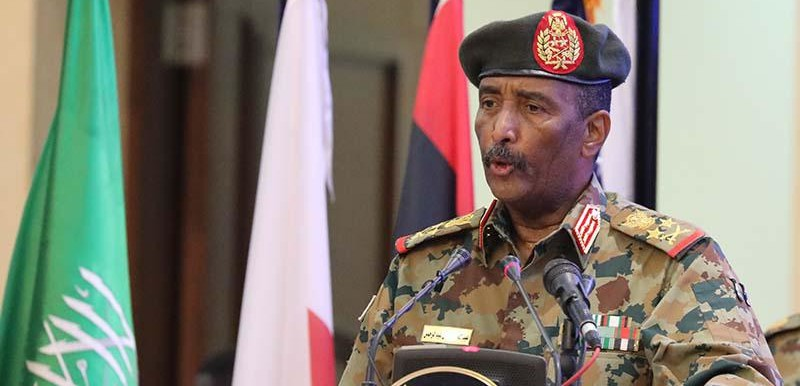The UN Special Representative for Sudan and head of the United Nations Integrated Transition Assistance Mission in Sudan (UNITAMS), Volker Perthes, announced that the talks between the Forces for Freedom and Change-Central Council (FFC-CC) and the military have allowed both parties to come close to an agreement. The main dispute is limited to the military remaining its presence and influence in state institutions.
In an interview with the Arabic Al Hadath Satellite TV on Wednesday, Perthes explained that the parties are roughly 80 per cent on their way towards reaching an agreement, but that the presence of the military in Sudan’s politics remains a point of contention.
Perthes rejected accusations of siding with certain parties in the political process but stressed that Sudan ‘must return to the transitional constitutional rule’ with the aim of establishing a democracy.
He also said that the mainstream FFC-CC is an essential component of a comprehensive solution, but that their presence in an agreement it is not sufficient and that all parties must make concessions to reach an agreement.
Perthes praised the positive change in the positions of all parties regarding negotiations and said that all parties accepted participating in Trilateral Mechanism, except the Communist Party of Sudan and the mainstream Arab Socialist Ba’ath Party.
They reject any dialogue with the military junta.
'It is not possible to imagine that a political solution can be reached with the putschists' - Ba'ath PartyIn a press statement on Wednesday, the Ba’ath party accused “the remnants of the former regime and the revolutionaries” of “plotting to lure other national forces into a settlement [with the military] that preserves the Salvation Regime [of former dictator Omar Al Bashir] in new clothes”.
The party reflects the opinion of many Sudanese when it stresses that the military will never hand over power to the Sudanese people. “It is not possible to imagine that a political solution can be reached with the putschists, especially as the people have repeatedly rejected all attempts to legitimise the coup.”
Various rebel movements and protest groups, including the FFC and the Resistance Committees of Khartoum, initially refused to participate in the initiative or take part in any dialogue with the military coup authorities and those who support them as they fear that this will legitimise the coup.
Resistance Committees Charter
Amidst the divisions and disputes between the various rebel movements and protest groups, the Resistance Committees in El Gezira’s capital Wad Madani and in Khartoum each launched a charter in an attempt to break with the current dominant opposition forces.
The Resistance Committees in Wad Madani launched the Revolutionary Charter for People’s Power (RCPP) in mid-January whilst the Khartoum Resistance Committees proposed the Charter for the Establishment of the People’s Authority (CEPA) in late February and signed it mid-may.
Both charters call for civilian-led democratic governance and prioritise social justice. However, they slightly differ in the tools they propose to implement these values.
Now the Sudanese Resistance Committees are working on unifying both charters to create a common stance.
Eight resistance committees in Khartoum state announced the resumption of the unification efforts and set the deadline for the merging of the two texts on July 5.
Three resistance committees, however, apologised. The Khartoum north (Bahri) Neighbourhood Committees, for example, criticised the procedures for merging the charter. In a statement on Wednesday, they explained that many resistance committees in the states that signed the RCPP have not yet seen the CEPA text.
Demanding the expulsion of the African Union
A group of 21 Sudanese human rights and civil society organisations have called on the UN not to engage representatives of the African Union in the political process.
They submitted a memorandum addressed to the Office of the Representative of the Secretary-General of the United Nations in Khartoum on Wednesday, in which they criticised “the negative role of the representatives of the African Union in the political process in Sudan” and accused them of not being neutral, practicing procrastination, and obstructing the transfer of power to civilians.
The memorandum was addressed directly to the Secretary-General of the United Nations.
The memorandum pointed to the absence of a system monitoring the work of the Trilateral Mechanism. It accused AU envoy Mohamed Hassan Ould Lebatt and Ambassador Mohamed Belaiche of not being neutral, siding with the military junta, and working to promote the coup instead of working to end it.
“This is in violation of the declared position of the African Union, which suspended Sudan’s membership in the African Union immediately after the coup d’état of October 25,” the memo stated.
Among the signatories are the Darfur Bar Association, the Darfur Aid and Documentation Centre, the Legal Authority for the Defence of Those Affected by the Unlawful Detentions, the Nuba Mountains Lawyers, the Beja Lawyers, the Nubian Legal Committee, and MANSAM, an alliance of Sudanese activists and political and civil society groups, including women’s and youth groups.

